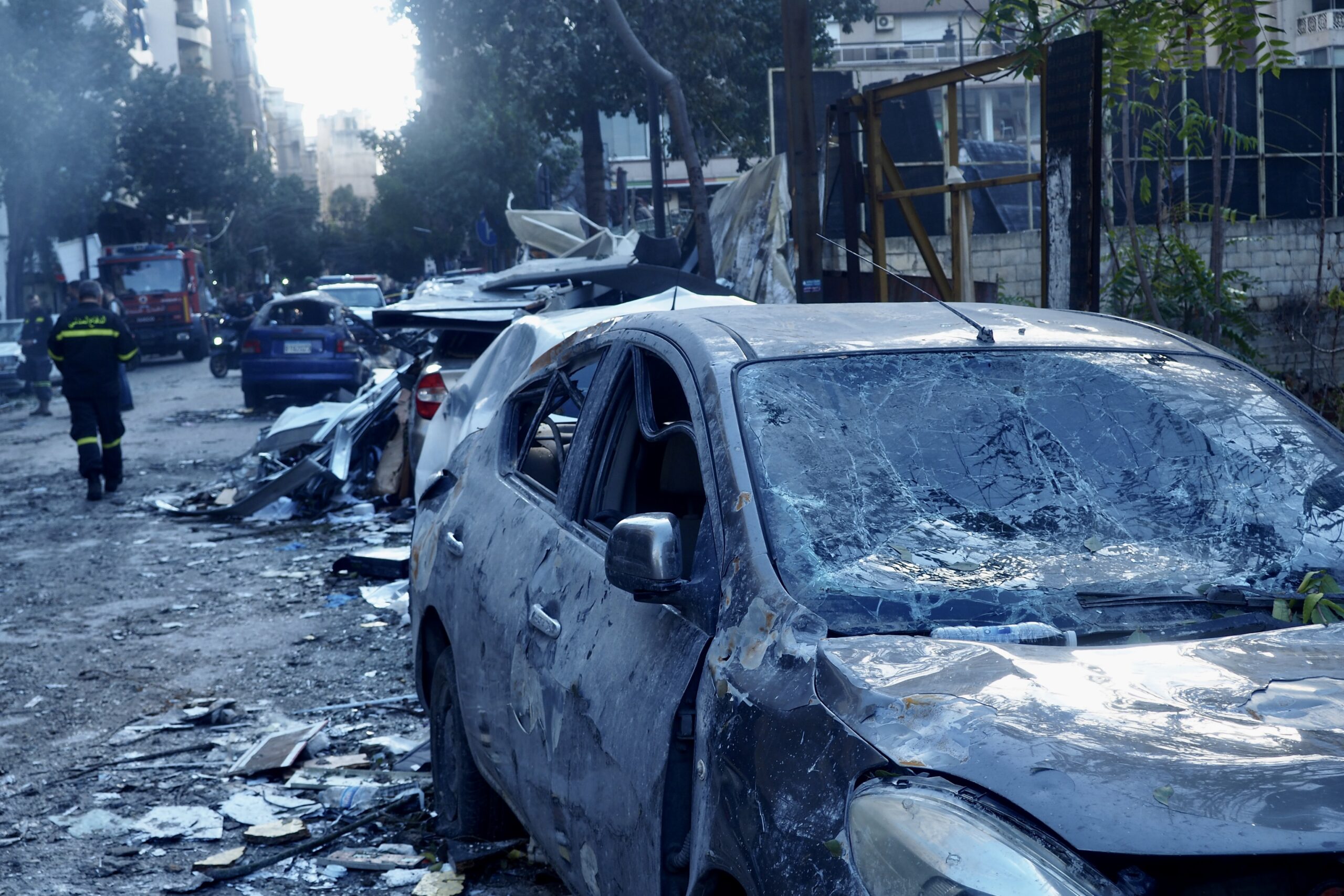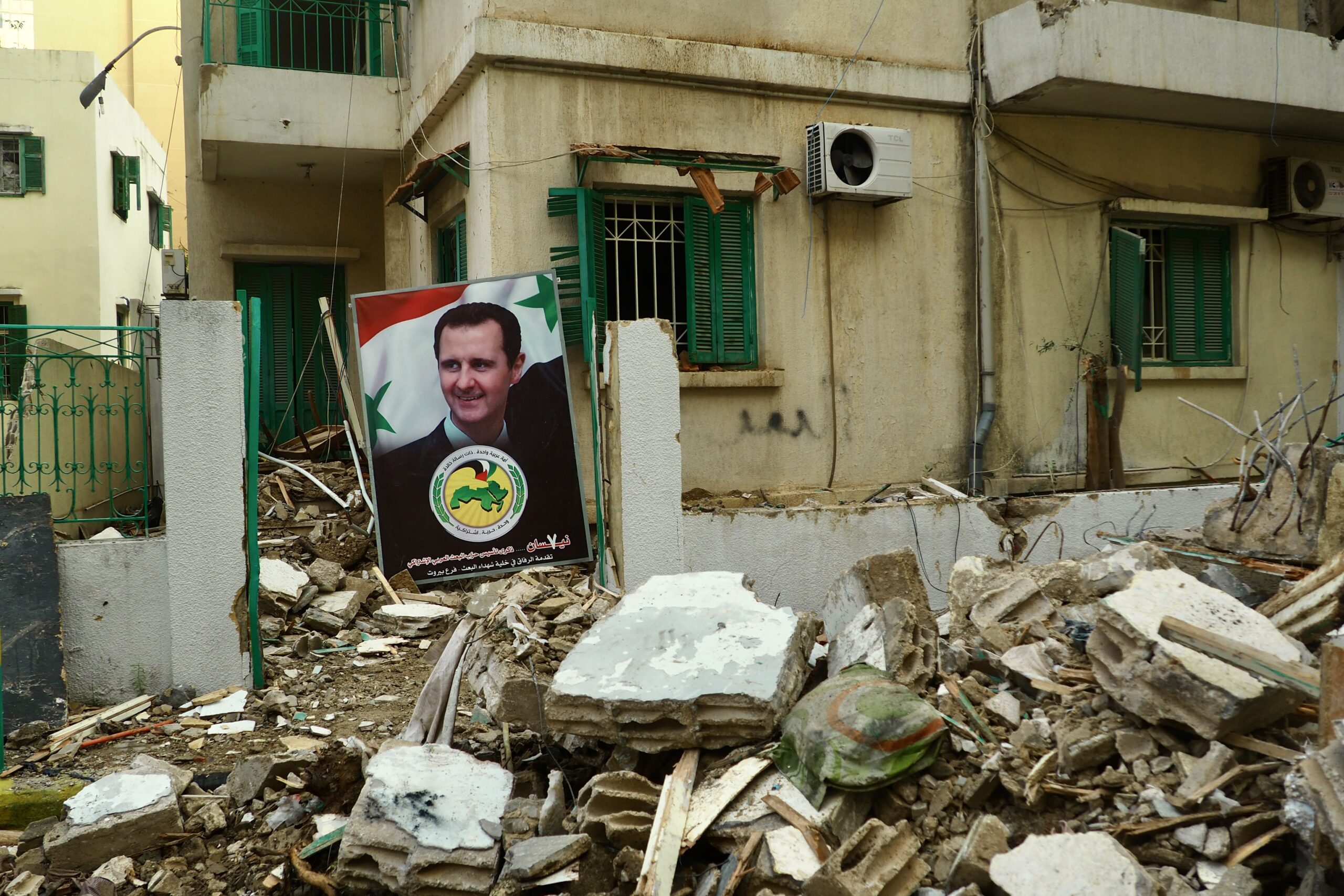Beirut Residents Reeling After Israeli Strikes Target Hezbollah Leaders
[Beirut] Death has never felt closer to Beirut resident Mahmoud Ghanem than it did this week when Israeli missiles struck his shop in the city’s Mar Elias neighborhood. His store, usually filled with the colors of sweets and chocolates, is now colored a charred gray and black.
There are no words to describe it. It was horrible: a car on fire, people on the ground between glass, the roof broken, everything covered in dust—complete madness.
He was in his shop when the Israeli strike began. “There are no words to describe it,” he told The Media Line. “It was horrible: a car on fire, people on the ground between glass, the roof broken, everything covered in dust—complete madness.”
His son Amir, who works with him in the shop, was in the family home next door at the time. “There were about five attacks, five missiles,” Amir told The Media Line. “It was chaotic, and all we heard was people screaming and smoke everywhere.” He showed photos of a fire in his bedroom sparked by the strike.

Mar Elias refugee camp, Lebanon. (Taylor Thomas/The Media Line)
Almost 20 hours after the flames were extinguished, the smoke is still poisoning the lungs of Beirutis. The Israeli attack, the umpteenth in recent months but the first in Mar Elias, targeted a technology store on the main commercial artery of this multicultural neighborhood.
There were a lot of people on the street at the time. It is a residential neighborhood, but now we just have to get on with our lives.
“There were a lot of people on the street at the time,” Amir said. “It is a residential neighborhood, but now we just have to get on with our lives.”
Traffic in the neighborhood has not stopped. Neither has life. “Today, I am still open,” Mahmoud said, shrugging his shoulders. “What can we do?”
This holiday season, give to:
Truth and understanding
The Media Line's intrepid correspondents are in Israel, Gaza, Lebanon, Syria and Pakistan providing first-person reporting.
They all said they cover it.
We see it.
We report with just one agenda: the truth.


The Ministry of Health has confirmed two deaths and 13 injured, although Beirutis on the street have said there are four people killed. One confirmed victim is the owner of the targeted technology store.
The Israeli military says that the dead were military leaders in southern Lebanon.
This week’s first bombing struck a bit more than a mile away in the central Ras el Nabaa neighborhood, shattering a peaceful Sunday afternoon for Beirut residents. Only one floor remains of the Baath party office after an Israeli attack targeting Hezbollah spokesperson Mohamed Afif and four other Hezbollah media officials took down the top two floors.
Rubble surrounds the foot of the building, centrally located among several residential buildings more than 12 floors tall. Someone has bothered to bring a portrait of Bashar Assad, the president of Syria and its Baath party and a faithful ally of Hezbollah, to the site.

A poster of Bashar Assad among rubble in Ras el Nabaa, Lebanon. (Taylor Thomas/The Media Line)
Hezbollah sources told The Media Line that a bulldozer is working on recovering the only missing body from the bombing.
This attack made Afif the first Hezbollah member outside of the group’s leadership or military wing to be targeted for assassination. His killing highlights the Israeli policy of pursuing Hezbollah’s administrative sector in order to reduce the group’s capacity on all fronts: economic, social, political, and military.
Before assuming the position of top spokesperson, Afif directed Hezbollah’s Al-Manar television station. He was one of the group’s most visible faces in the national and international press and a great ally to Hezbollah leader Hassan Nasrallah, who was killed in September in an Israeli airstrike.
Afif’s death will undermine Hezbollah’s ability to communicate and transmit its message to the world. Six days before his death, Afif made his final comments to the press, saying that Israeli troops had failed to occupy any territory in Lebanon and that Hezbollah had enough weapons and supplies to wage a “long war.”
Over the weekend, Hezbollah confirmed that it had considered the US proposal for a cease-fire in Lebanon that is meant to end more than a year of conflict. The group reportedly told the White House it supported ending the war and asked for some changes to the initial text.
Amos Hochstein, a special envoy for President Joe Biden’s administration, arrived in Beirut on Tuesday for cease-fire talks with various officials.
According to Al Jazeera, the cease-fire agreement would be based on UN Security Council Resolution 1701, which demands the withdrawal of Hezbollah from southern Lebanon and would not allow Israel freedom of movement in the area. The draft agreement reportedly includes a right to self-defense for both sides, a condition that Lebanese officials call overly ambiguous.

Ras el Nabaa, Lebanon. (Taylor Thomas/The Media Line)
Meanwhile, Israel continues to expand its attacks across the country. On Monday, Lebanon’s Health Ministry announced that 11 people were killed in strikes on Tyre, the main coastal city in southern Lebanon.
In what has become a pattern in recent weeks, another eight paramedics were killed when Israel struck rescue and emergency services responding to the scene after an attack. Two soldiers in the Lebanese military, which is not involved in the war, were also killed on Sunday.
The Lebanese people are peaceful. The people here are good and just want to live. I don’t have an enemy, but there is someone who threatens us without saying anything.
“The Lebanese people are peaceful. The people here are good and just want to live. I don’t have an enemy, but there is someone who threatens us without saying anything,” Mahmoud Ghanem said from his sweets shop in Mar Elias, pointing to a buzzing Israeli drone in the sky.
He said that he and his countrymen don’t know when their death will come. “We don’t want this war that has been imposed on us,” he said as smoke rose from the rubble around him.

